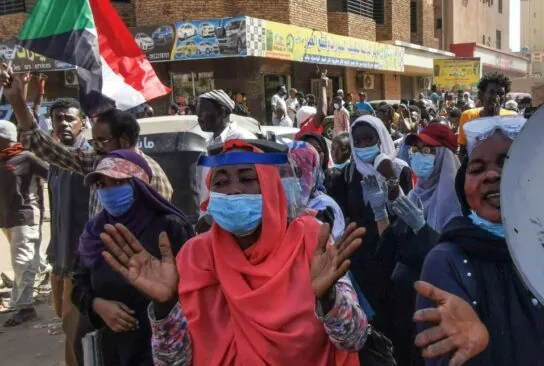Portfolios
Explore our Portfolios

Gender Policy
The Gender Policy Portfolio seeks to enhance the role of gendered analyses in the foreign and domestic policy spaces. Toward this end, the portfolio engages with gender specialists to develop fresh perspectives on issues ranging from national security to health care to democratic resilience.
The portfolio produces targeted forecasts and recommendations, with the aim of increasing the role of people of all genders in our nation’s policymaking process.
When a gender analysis is paired with an intersectional analysis, it provides for a richer and more nuanced understanding of issues relating to foreign policy and national security. By applying a gender and intersectional lens to issues of foreign policy, one can better understand how U.S. allies and competitors use gender to their strategic advantage (see Why U.S.-China Relations Need a Gender Analysis) or how sexual abuse against boys shaped U.S. foreign policy (See What About the Boys: A Gendered Analysis of the U.S. Withdrawal and Bacha Bazi in Afghanistan).
Gender equality is linked to national security, higher GDP rates, increased productivity, and lower rates of conflict. New Lines’ Gender Policy Portfolio believes that U.S. foreign and domestic objectives would be strengthened with consistent gender and intersectional analyses woven throughout U.S. policy. As such, the Gender Policy Portfolio provides policymakers with the tools to make this vision a reality.
The Gender Policy portfolio is directed by Emily Prey and Kallie Mitchell.
Gender Policy Initiatives
Gender as an Analytical Tool for Foreign Policy
Women, Peace, and Security
Global Responses to Sexual and Gender-Based Violence
Submissions
The New Lines Institute for Strategy and Policy publishes work that combines geopolitical insight with subject-matter expertise. New Lines Institute publications examine tactical developments involving regimes, nonstate actors, local politics, ideologies, etc. Our work situates them in the strategic context of macro-level factors such as geography, populations, economics, military power, history, and culture. All our content must demonstrate analytical empathy and is geared toward advancing the cause of human security and stabilization and development on our planet. That said, we do not publish “op-ed” pieces, polemical content, or activist/advocacy work.
We welcome contributions from diverse experts with various sub-specialties to ensure that we consistently produce the highest-quality product. Our team firmly believes that expertise exists across the political spectrum and disciplinary fields; the key is to help our authors showcase it without indulging in partisan discussions. We expect our authors to focus on the how, why and (most importantly) the what next because our audience is already very familiar with the who, what, where, and when of the subjects we tackle.



